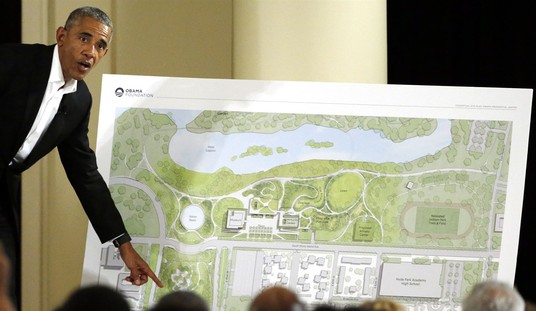Shot:
But, while the spotlight is on Williams’s transgressions, a word about the complicity of NBC and the other networks’ marketing machines. The networks have a stake in promoting their anchors as God-like figures. By showing them in war zones, with Obama or Putin, buffeted by hurricanes, and comforting victims, they are telling viewers that their anchors are truth-tellers who have been everywhere and seen everything and have experience you can trust.
* * * * * * * *
In addition to the marketing campaigns, something else happens that often induces anchors to think of themselves as God. Each of them is seen in roughly eight to ten million homes nightly. They are seen by many more people, and more frequently, than any movie star. To walk down a street with an anchor is to be stunned both by how many people recognize them and how many viewers call out to them about specific stories. There’s a respectful familiarity different from the awe displayed to Hollywood celebrities. The anchor is treated as the citizen’s trusted guide to the news. As a result, they can feel expected to dominate discussions, to tell war stories, to play God. It’s a short distance from there to telling fantastic stories—and maybe actually believing them.
—“Brian Williams and the God Complex,” Ken Auletta of the New Yorker, yesterday.
Chaser:
Auletta, for example, can describe Bush at a barbeque for the press in August, where a reporter says to the president: is it really true you don’t read us, don’t even watch the news? Bush confirms it.
And the reporter then said: Well, how do you then know, Mr. President, what the public is thinking? And Bush, without missing a beat said: You’re making a powerful assumption, young man. You’re assuming that you represent the public. I don’t accept that.
Which is a powerful statement. And if Bush believes it (a possibility not to be dismissed) then we must credit the president with an original idea, or the germ of one. Bush’s people have developed it into a thesis, which they explained to Auletta, who told it to co-host Brooke Gladstone:
That’s his attitude. And when you ask the Bush people to explain that attitude, what they say is: We don’t accept that you have a check and balance function. We think that you are in the game of “Gotcha.” Oh, you’re interested in headlines, and you’re interested in conflict. You’re not interested in having a serious discussion… and exploring things.
Further data point: The Bush Thesis. If Auletta’s reporting is on, then Bush and his advisors have their own press think, which they are trying out as policy. Reporters do not represent the interests of a broader public. They aren’t a pipeline to the people, because people see through the game of Gotcha. The press has forfeited, if it ever had, its quasi-official role in the checks and balances of government. Here the Bush Thesis is bold. It says: there is no such role— official or otherwise.
—“Bush to Press: ‘You’re Assuming That You Represent the Public. I Don’t Accept That,'” Jay Rosen of NYU at his Press Think blog, April 25, 2004. (Just as the MSM had a raging case of Bush Derangement Syndrome from 2000 through the end of 2008 (as can be hinted at in the above passage), in 2010 Rosen would go on to have a different case of BDS — Breitbart Derangement Syndrome, furious at another man who didn’t accept the premises of the MSM.)
Hangover:
Brian Williams, I’m sure, will never embellish a story again, nor I suspect put himself in the middle of it.
He will, if he is allowed, be a better reporter and anchor as a result of what he is now going through.
In fact, ironically, Brian Williams is now the news anchor I would trust most on American television.
—Piers Morgan, the London Daily Mail today. If that’s Morgan’s standard for television news, Jayson Blair is the most overqualified print journalist on the planet.










Join the conversation as a VIP Member